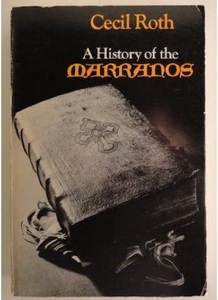NAMES ANALYSIS REPORT
You searched for:"Furtado",
Here's what we found
The English meaning of Furtado is Stolen, Robbed.
The name Furtado is of Portuguese origin.
There are many indicators that the name Furtado may be of Jewish origin, emanating from the Jewish communities of Spain and Portugal.
When the Romans conquered the Jewish nation in 70 CE, much of the Jewish population was sent into exile throughout the Roman Empire. Many were sent to the Iberian Peninsula. The approximately 750,000 Jews living in Spain in the year 1492 were banished from the country by royal decree of Ferdinand and Isabella. The Jews of Portugal, were banished several years later. Reprieve from the banishment decrees was promised to those Jews who converted to Catholicism. Though some converted by choice, most of these New-Christian converts were called CONVERSOS or MARRANOS (a derogatory term for converts meaning pigs in Spanish), ANUSIM (meaning "coerced ones" in Hebrew) and CRYPTO-JEWS, as they secretly continued to practice the tenets of the Jewish faith.
Our research has found that the family name Furtado is cited with respect to Jews & Crypto-Jews in at least 15 bibliographical, documentary, or electronic references:
From the records of Bevis Marks, The Spanish and Portuguese Congregation of London
Bevis Marks is the Sephardic synagogue in London. It is over 300 years old and is the oldest still in use in Britain.The Spanish and Portuguese Jews' Congregation of London has published several volumes of its records: they can be found in libraries such as the Cambridge University Library or the London Metropolitan Archive
From the burial register of Bethahaim Velho Cemetery, Published by the Jewish Historical Society of England and transcribed by R. D. Barnett.
The register gives us dates for the burials in the "Bethahaim Velho" or Old Cemetery. The dates are listed as per the Jewish calendar.
Finding Our Fathers: A Guidebook to Jewish Genealogy, by Dan Rottenberg
In this work Dan Rottenberg shows how to do a successful search for probing the memories of living relatives, by examining marriage licenses, gravestones, ship passenger lists, naturalization records, birth and death certificates, and other public documents, and by looking for clues in family traditions and customs. Supplementing the "how to" instructions is a guide to some 8,000 Jewish family names, giving the origins of the names, sources of information about each family, and the names of related families whose histories have been recorded. Other features included a country-by-country guide to tracing Jewish ancestors abroad, a list of Jewish family history books, and a guide to researching genealogy.
A History of the Marranos, by Cecil Roth.
The expulsion of the Jews from Spain in 1492 by the infamous decree of King Ferdinand and Queen Isabella was the culmination of a series of anti-Jewish persecutions throughout the 14th and 15th centuries in which thousands of Jews were massacred. Thousands of others converted in order to escape death. After the expulsion many more joined the ranks of these "new Christians" as an alternative to exile. A large number of converts, while outwardly professing Christianity, secretly continued to practice Judaism. These Marranos, as they were popularly known, were then mercilessly persecuted by the dreaded Inquisition which through tortures of forced confessions and auto-da-fes sent thousands to the stake. Many others managed to escape to countries outside the reach of the Inquisition where they created a widespread Marrano diaspora. Thousands of Marranos have survived even into our times. This seminal work by the eminent historian traces the tribulation of these secret Judaizers as well as the fate of those who succeeded in escaping to other lands where many of them rose to prominence in various fields of endeavor.
Jews in Colonial Brazil, by Arnold Wiznitzer
Professor Wiznitzer gathered detailed information about individual Jewish settlers in colonial Brazil and about cases where they were brought before the Inquisition at Lisbon, and his study throws new light on some phases of Brazilian colonial history. Many Jews fled to Brazil and others were deported to the colony as convicted heretics after the King of Portugal attemtped to compel all of his Jewish subjects to accept Christianity in 1497.They were active in the establishment of the sugar industry and in trade, and they maintained close relations with another large group of exiles who had taken refuge in Amsterdam.Most of the "new Christians" continued to practice the old religion secretly.
Precious Stones of the Jews in Curaçao; Curaçaon Jewry 1656-1957, by Isaac Samuel Emmanuel (1957)
Names taken from 225 tombstones of 2536 persons, 1668 - 1859, men, women and some Rabbis. Includes cemetery history and plan, biographies including family histories, chronological list of names, alphabetical list of family names + number of members + eldest tombstone year, large bibliography, general alphabetical index, 15 genealogies.
From the publication, "Los Sefardíes" (The Sephardim),by Jose M. Estrugo. Published by Editorial Lex La Habana, 1958.(Surnames common among the Sephardim)
When the Romans conquered the Jewish nation in 70 CE, much of the Jewish population was sent into exile throughout the Roman Empire. Many were sent to the Iberian peninsula. The area became known by the Hebrew word "Sepharad". The JEWS in SPAIN and PORTUGAL became known as "Sephardim" or and those things associated with the SEPHARDIM including names, customs, genealogy and religious rituals, became known as SEPHARDIC.
The Sephardim of England, by Albert M. Hyamson
A history of the Spanish & Portugese Jewish Community, 1492-1951.
The Jews of Jamaica, by Richard D. Barnett and Philip Wright.Oron Yoffe, Ben-Zvi Institute, Jerusalem, 1997.
The product of many years of painstaking research by two late scholars, Richard D. Barnett and Philip Wright, this volume presents the texts or summaries of 1456 tombstone inscriptions of Jews who lived in Jamaica between 1663, when the British ousted the Spanish, and 1880, when systematic registration of deaths was introduced. Jewish families who had fled the Inquisition in Spain and Portugal settled in Jamaica in increasing numbers during that time. Ashkenazic Jews also settled there in the eighteenth century. The Jews played a significant part in developing the island's natural resources and its international trade. Featuring detailed indexes by name, date and language, The Jews of Jamaica is a valuable tool for the study of immigration to the Americas, the surnames, given names and genealogy of Sephardi Jews. The texts of the inscriptions, many of them in three languages (Hebrew, English and Portuguese or Spanish), are of cultural interest and sometimes refer to dramatic events in the lives of the Jewish residents of Jamaica during a turbulent period.
Raizes Judaicas No Brasil,(Jewish Roots in Brazil) by Flavio Mendes de Carvalho.
This book contains names of New Christians or Brazilians living in Brazil condemned by the Inquisition in the 17th and 18th centuries, as taken from the archives of Torre do Tombo in Lisbon. Many times details including date of birth, occupation, name of parents, age, and location of domicile are also included. The list also includes the names of the relatives of the victims. There are several cases in which many members of the same family were tortured and sentenced so some family lines may end here.
Sephardic names from the magazine "ETSI". Most of the names are from (but not limited to) France and North Africa. Published by Laurence Abensur-Hazan and Philip Abensur.
ETSI (a Paris-based, bilingual French-English periodical) is devoted exclusively to Sephardic genealogy and is published by the Sephardi Genealogical and Historical Society (SGHS). It was founded by Dr. Philip Abensur, and his professional genealogist wife, Laurence Abensur-Hazan. ETSI's worldwide base of authors publish articles identifying a broad spectrum of archival material of importance to the Sephardic genealogist. A useful feature of ETSI is the listing, on the back cover, of all Sephardic family names, and places of origin, cited in the articles contained in each issue
From the civil records of Amsterdam, The Netherlands
The Amsterdam Municipal Archives possess a complete set of registers of intended marriages from 1578 to 1811, the year when the present Civil Registry was started. Between 1598 and 1811, 15238 Jewish couples were entered in these books. Both the number of records and the volume of data that may be extracted from them are unprecedented.
A Origem Judaica dos Brasileiros (The Origin of The Brazilian Jews), by Jose Geraldo Rodrigues de Alckmin Filho
This publication contains a list of 517 Sephardic families punished by the inquisition in Portugal and Brazil.
The Circumcision Register of Isaac and Abraham De Paiba (1715-1775) from the Archives of the Spanish and Portuguese Jews' Congregation of Bevis Marks (London. England).
This register is from the manuscript record preserved in the Archives of the Spanish and Portuguese Jews' Congregation of London named "Sahar Asamaim" transcribed, translated and edited by the late R.D. Barnett, with the assistance of Alan Rose, I.D. Duque and others; There is also a supplement with a record of circumcisions 1679-1699, marriages 1679-1689 and some female births 1679-1699, compiled by Miriam Rodrigues-Pereira. The register includes surnames of those circumsized as well as the names of their Godfathers & Godmothers.
Dicionario Sefaradi De Sobrenomes (Dictionary of Sephardic Surnames), G. Faiguenboim, P. Valadares, A.R. Campagnano, Rio de Janeiro, 2004
A bilingual (Portugese/English)reference book of Sephardic surnames. Includes New Christians, Conversos, Crypto-Jews (Marranos), Italians, Berbers and their history in Spain, Portugal and Italy. Contains over 16,000 surnames presented under 12000 entries, with hundreds of rare photographs, family shields and illustrations.It also contains a 72-page summary of Sephardic history, before and after the expulsion from Spain and Portugal, as well as a 40-page linguistic essay about Sephardic names, including an interesting list of the 250 most frequent Sephardic surnames. The period covered by the dictionary is of 600 years, from the 14th to the 20th century, and the area covered includes Spain and Portugal, France, Italy, Holland, England, Germany, Balkans, Central and Eastern Europe, the former Ottoman Empire, Morocco, Algeria, Tunisia, Libya, Egypt, Iraq, Yemen, Syria, Lebanon, Israel, North America, Central America and the Caribbean, South America and more.
Around the 12th century, surnames started to become common in Iberia. In Spain, where Arab-Jewish influence was significant, these new names retained their old original structure, so that many of the Jewish surnames were of Hebrew derivation. Others were directly related to geographical locations and were acquired due to the forced wanderings caused by exile and persecution. Other family names were a result of conversion, when the family accepted the name of their Christian sponsor. In many cases, the Portuguese Jews bear surnames of pure Iberian/Christian origin. Many names have been changed in the course of migration from country to country. In yet other cases "aliases", or totally new names, were adopted due to fear of persecution by the Inquisition.
Some interesting facts about the name this name are : FURTADO appears 5 times in the Inquisition records. According to some authors,there is a curious legend about the name Furtado that goes back to the times of D. João II when the king ordered that all the Jewish children between the ages of 2 and 10 years should be taken away from their parents and sent to the island of São Tomé, where many of them perished.
The following websites are relevant to the surname Furtado:
http://www.brasilsefarad.com/joomla/images/stories/Biblioteca/mitosobrenomes.pdf












